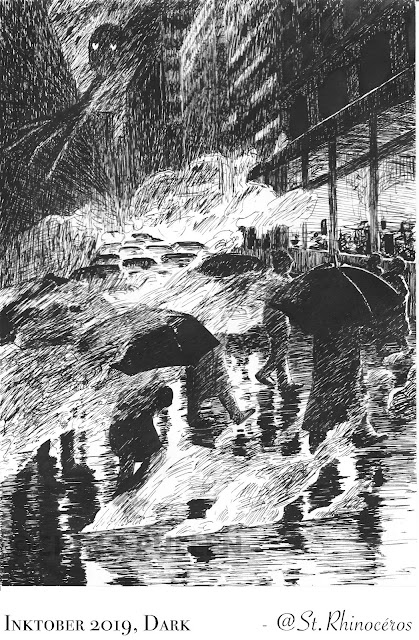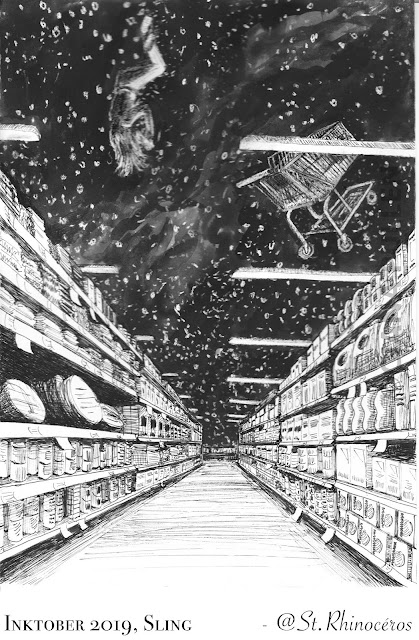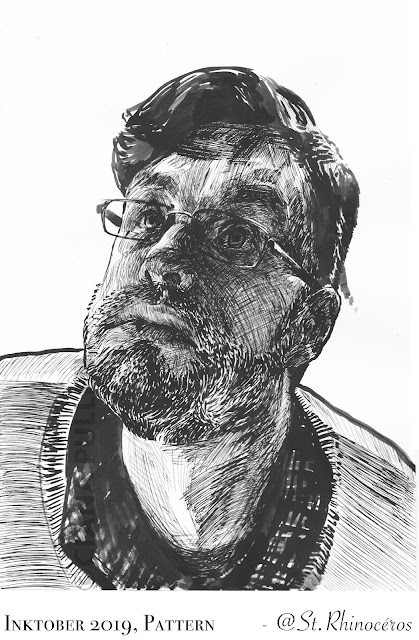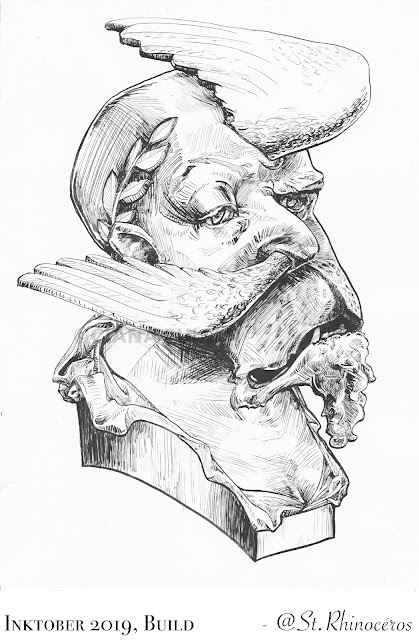Forget every "makeup for you eye shape" article you've ever read.
There is time to explore eye shape in portraiture, but this post isn't it. Nor their size, nor the form of the lids, nor any mystical woo about souls. This post is only about where the lids intersect with the iris and pupil, and how that effects expression. As a portrait artist you should pay extra attention to this detail, because the human brain pays a
disproportionate amount of attention to eyes, thus any little mistake is noticeable immediately.
As we emote and our eyeballs roll hither and thither, and as we scrunch our faces in speech and emotion, naturally the lids move over the iris and will intersect at different points. That's why a smile is associated with a squished up, crinkled lower lid that sits high on the eyeball. To smile with the bottom of the iris exposed, meanwhile, is very unsettling.
 |
| Bill Skarsgård smiling normally, left, and as Pennywise from It, smiling with exposed bottom iris, right. |
But faces are all different of course, and distinctive in the point at which the lids intersect the iris while looking straight ahead in a neutral expression. It can create an important "aura" to a person. The neutral form can unwittingly imitate certain expressions in the general population, thereby creating iciness, naiveté, peacefulness, or a number of other first glance impressions.
Looking straight
ahead, most people's upper eyelid covers just the top of the iris, and
most people's bottom lid skirts the bottom edge of the iris, covering it slightly. Here are some average lid-iris intersections:



































